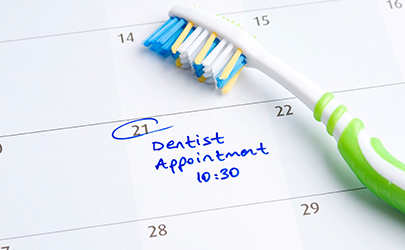Our Morden dentists explain the problems wisdom teeth can cause, the benefits of wisdom teeth removal, what the procedure involves, and how this dental surgery can help you feel better.
What are wisdom teeth?
Between the ages of 17 and 25, most people develop a third set of molars that can be a valuable asset if they grow in straight and healthy. However, these teeth are sometimes misaligned or impacted, and require removal.
We can help prevent future issues with your oral health by removing problematic wisdom teeth.
What problems can wisdom teeth cause?
If wisdom teeth emerge in the wrong positions or there simply isn't enough room for them in your jaw, they can become impacted, crowded or not fully erupt. This can cause issues for oral health as they are impossible to clean when they remain below the gum line. If they are crowded, they become difficult to reach with a toothbrush and to floss properly.
They can also cause:
- Infection (which leads to pain)
- Difficulty chewing, biting or opening your mouth
- Bad breath
- Swelling in your jaw or face (potentially due to infection)
- In emergency situations: chest pain, lightheadedness, shortness of breath
At Boundary Trails Dental Centre, we advise taking a preventive approach to removing wisdom teeth, since molars (especially third molars) are more vulnerable to dental problems than other teeth in your mouth.
What are the benefits of having problematic wisdom teeth removed?
Having your wisdom teeth removed can offer many benefits, including:
- Preventing infection or decay
- Preventing damage to other teeth
- Alleviating or lessening pain in your face and mouth
- Solving issues with bad breath
- Preventing the need for further dental or orthodontic work in the future
- Improving oral health
How will I feel better after having my wisdom teeth removed?
There are many oral health benefits to having your wisdom teeth removed, and the procedure is very common – within a few days you'll be eating normally again. Having this procedure performed now can also save you from experiencing more pain due to impacted wisdom teeth or other issues.
You may also save time and money, as you may not need more time-consuming and costly dental or orthodontic work in years to come, thanks to eliminating the complications wisdom teeth can bring.
What does wisdom teeth removal involve?
Step 1: Anesthetic
First, a local anesthetic will be used to numb the tooth and surrounding area. A general anesthetic is rarely used - only in instances where the procedure is completed in a hospital.
Step 2: Extracting the Tooth
If the tooth is still under the gum, a small incision or cut will be made and a tiny piece of the bone over top of the tooth may also be removed. Your dentist or surgeon may cut the tooth into smaller parts so it’s easier to remove through the opening.
If the tooth has emerged through the gum, there will be less need for an incision. Just before the tooth is removed, you’ll feel some pressure as the dentist or surgeon rocks the tooth back and forth, widening the socket, before the tooth is removed.
As your wisdom teeth are actually removed, you shouldn’t feel any pain as the anesthetic will have numbed the area. If this is painful for you, let the dentist or surgeon know so they can provide more anesthetic.
Simple wisdom teeth removal procedures can take up to 20 minutes, with complex procedures running longer.
What is the recovery from wisdom teeth removal like?
You should be able to go home the same day as your procedure. Dissolving stitches usually take between 7 and 10 days to dissolve, and a piece of gauze may be applied to the extraction site.
You’ll be asked to keep pressure on it by biting your jaws together for about an hour. This allows the blood clot to form within the empty socket, which encourages the healing process. You may be prescribed antibiotics to prevent infection.
For 24 hours after your procedure, you should avoid:
- Drinking hot liquids such as coffee or soup
- Rinsing your mouth out with liquid (which could dislodge the clot)
- Smoking or drinking alcohol (which could result in infection)
- Strenuous physical activity (which may encourage bleeding)
If you notice any problems or extreme discomfort after your recovery period, book an appointment with your dentist so they can check the extraction site.



